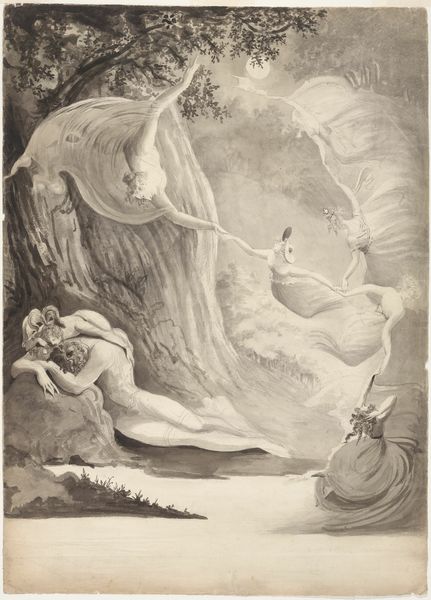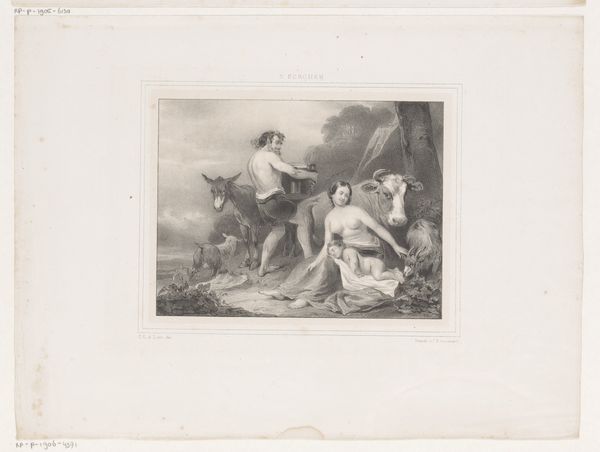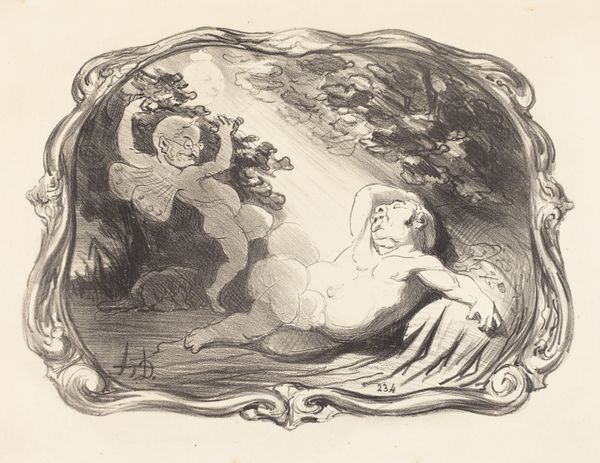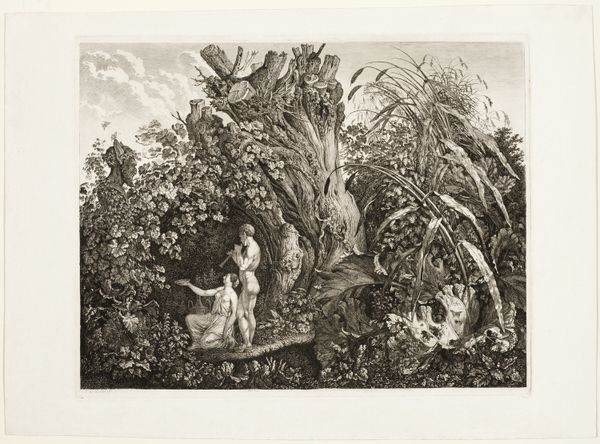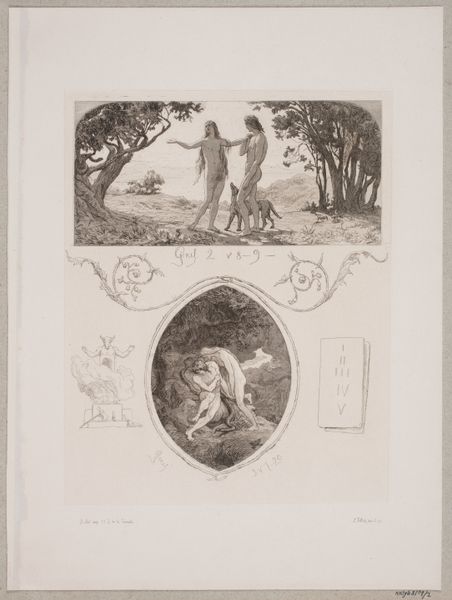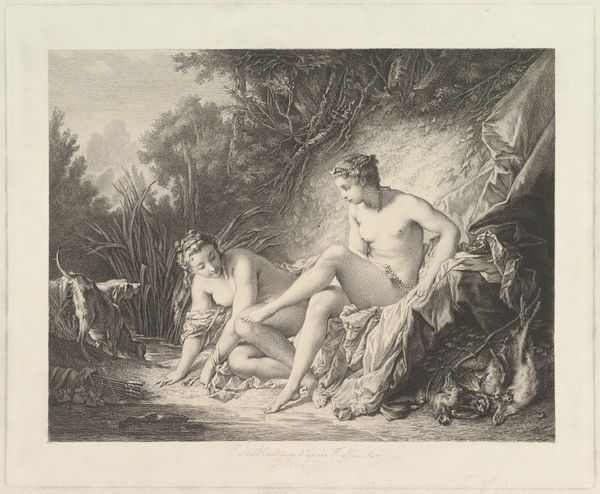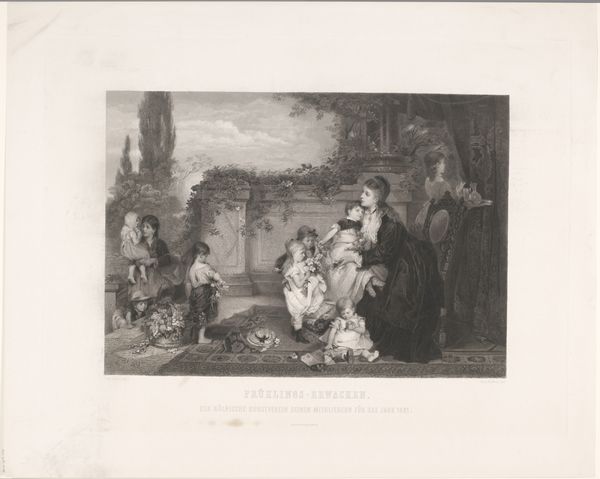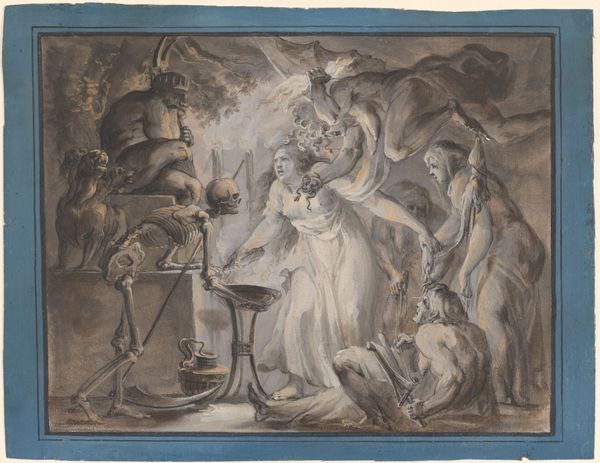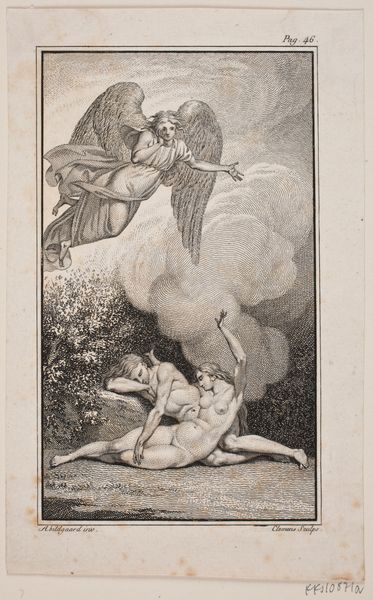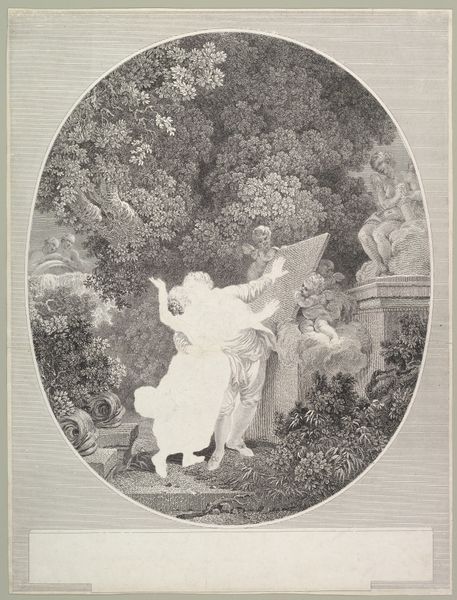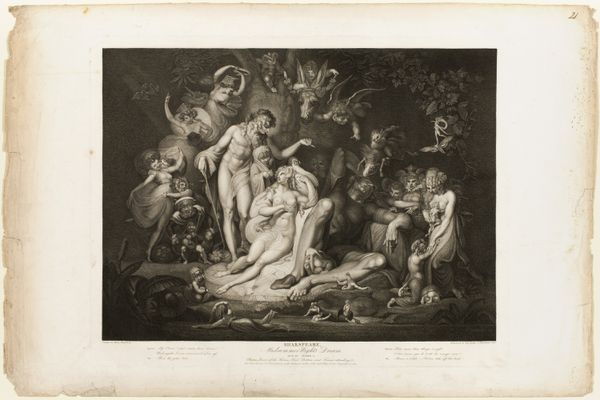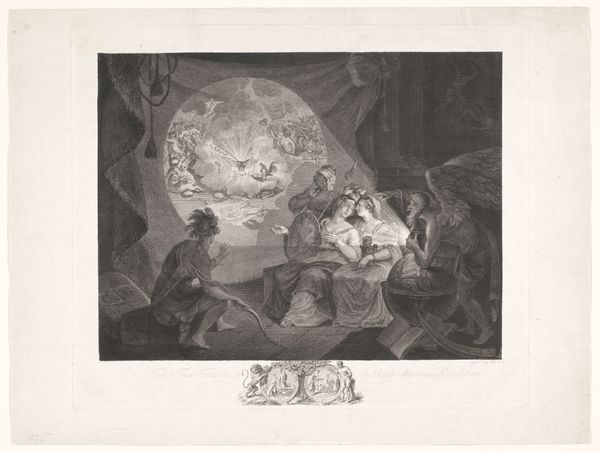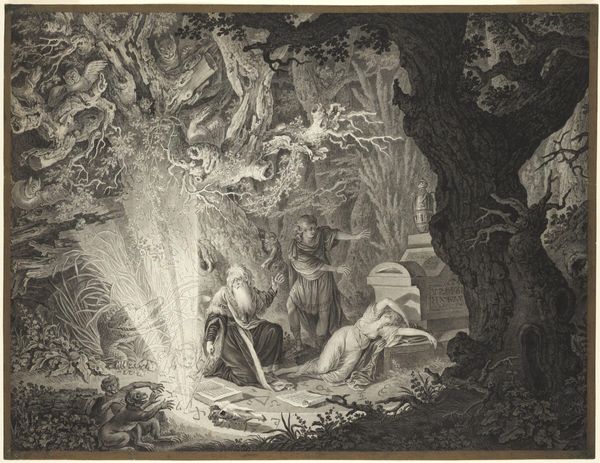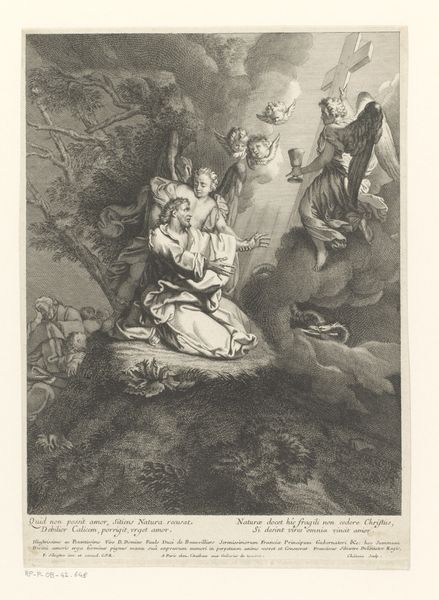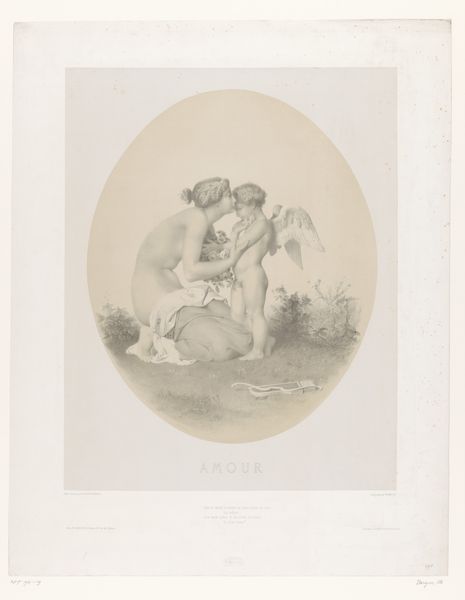
Dimensions: 21 1/8 x 34 1/8 in. (53.66 x 86.68 cm) (plate)26 7/16 x 37 13/16 in. (67.15 x 96.04 cm) (sheet)
Copyright: Public Domain
This print, Midsummer Night’s Dream, was made by Samuel Cousins, who lived from 1801 to 1887. It's a mezzotint, a printmaking process that allows for rich tonal range and velvety blacks. Mezzotint is an intaglio process, where the image is incised into a metal plate, in this case, likely copper. The entire plate is roughened with a tool called a rocker, creating a surface that would print solid black. Then, the artist works from dark to light, smoothing areas to create lighter tones. The labor-intensive process demanded skill and patience, reflecting the printmaker's mastery over the medium. Cousins’ choice of mezzotint lends itself to the romantic, dreamlike atmosphere of the scene. The velvety blacks and soft gradations of tone evoke the mystery and magic of Shakespeare's play, while the smoothness of the medium contrasts with the drama of the scene. This emphasizes the skill and technique of the artist. Considering the time and expertise involved in creating a mezzotint, appreciating the process is key to understanding its value. It challenges the traditional distinction between fine art and craft, revealing the artistry inherent in skilled reproduction.
Comments
minneapolisinstituteofart about 2 years ago
⋮
An accomplished English printmaker, Samuel Cousins (1801–1887) has the distinction of being the first engraver academician in the London Royal Academy, appointed in 1855 and then elevated to a full Royal Academician in 1867. In A Midsummer Night's Dream Cousins reproduces a painting by Sir Edwin Landseer (1802–1873), the widely popular Victorian painter, and is one of seven prints made by him after Landseer's work. From Shakespeare's fantastical comedy, the work depicts Titania, Queen of the Fairies, nestling up to Bottom. Under Puck's spell, the beautiful Titania fell in love with this donkey-headed creature. Puck appears naked in the foreground, watching the hilarious scene unfold, with a group of small winged ferries riding on white rabbits. Cousins exhibited an impression of the print at the Royal Academy in 1858, where it was well received. Upon seeing the print Landseer declared it to be Cousins's greatest work. The present mezzotint was skillfully hand-colored by an unknown hand at a later date.
Join the conversation
Join millions of artists and users on Artera today and experience the ultimate creative platform.
